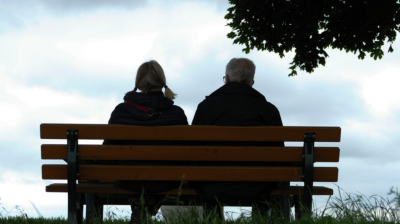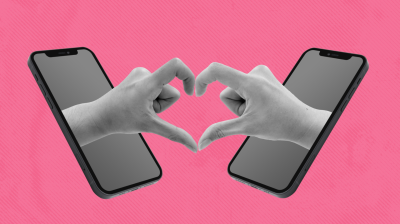How I started my eating disorder recovery journey
Looking back over the last three years, Isabel explains why November is an important time for her in her recovery.

November is a strange time of the year. On the one hand it’s getting even colder, darker and rainier than usual but on the other hand it’s also the run up to Christmas which is synonymous with Christmas shopping, itchy jumpers, selections boxes, mulled wine, blankets, fluffy socks and hot chocolate in front of the fire. However, November has a particular significance for me because November is the month I started my recovery journey from an eating disorder.
I was in 6th year in secondary school at the time, the dreaded leaving cert year. Unfortunately, the stress of moving school coupled with academic pressure, my own perfectionism and past experiences had become too much and I developed anorexia. At the time, I didn’t recognise the thought patterns and behaviours as being an eating disorder. I only knew about eating disorders in abstract terms from SPHE class or the version often portrayed by the media. I didn’t know anyone who had one and I never thought that it was something that could or would happen to me.
It was that November that I realised I couldn’t continue down the path I was on. When people hear the word anorexia they almost always instantly think about weight. I want to highlight the fact that anorexia is not primarily about weight. This harmful stereotype often prevents people from feeling they can ask for help and even from getting help in the first place since in my experience services are weight focused. Anorexia is about not feeling good enough, being permanently cold, spending every waking moment obsessing about food (or even dreaming about it), hair falling out, never having energy no matter how much you sleep and being unable to concentrate no matter how hard you try.
I can clearly remember the day in November I decided to start fighting back against the voice in my head. I was sick of avoiding social situations involving food. It was coming up to another Christmas which I didn’t want to be dominated by arguments about food – the lies pretending I had already eaten, the constant fear around food and obsessive calorie counting, the need to exercise even when I was already exhausted and being cold even while wearing 3 jumpers. I came to understand that I am worth more than a number on the scale and I recognised that no matter how much weight I lost it would never be enough for anorexia. I started out by making a list of all the reasons why I wanted to recover from anorexia as motivation. I wanted to get my period back because I want to be able to have children in the future. I wanted to be able to eat cake at my next birthday. I wanted to be able to wear shorts and go swimming in the summer without being ashamed or self-conscious about my body and most of all I wanted to be able to go to university and be free from the rules that governed my every action.
I could never have guessed how difficult recovery would be, nor how long it would take. It has taken 3 years and more ups and downs than a rollercoaster in Thorpe Park but I have finally managed it and can proudly say that I am recovered and that I am living the university life I didn’t think possible. One thing I didn’t know at the time was that you don’t just choose recovery once, you choose it every single day until it’s no longer a question. Every meal time you have to remind yourself why you are doing this, you have to push through the fears, the doubts, the omnipresent guilt and the overbearing insecurities. Nobody tells you about the night sweats, the discomfort involved in restoring your weight or that bittersweet feeling of pride mixed with terror and regret as you bring yet another bag of clothes that no longer fit to the charity shop. Yes, you will have moments where you ask yourself if it’s all worth it. Yes, you will think that you were happier then, that life was better when you were ill. Your eating disorder is sneaky and will try and worm its way back into your life in the most unexpected of ways. You have to shut the door to it and move forward toward a healthier and ultimately happier life.
“Food is not the enemy, your eating disorder is” became one of my mantras as did “fat is not a feeling” that helped me through each day. I will admit that sometimes that voice in my head does scream at me, but I’ve learned to scream louder and if you have that same voice in your head. I hope this can prove to you that recovery is possible and that there is a life beyond an eating disorder.
This article was written by a SpunOut.ie volunteer. Check out our volunteering opportunities here and get in touch if you’re interested in getting involved.






